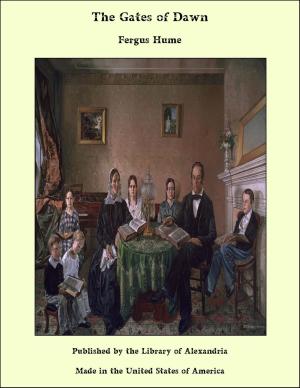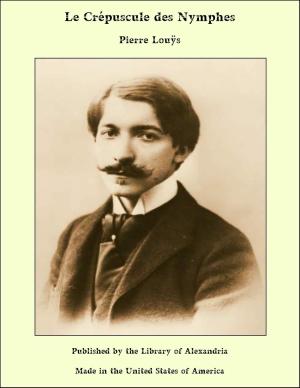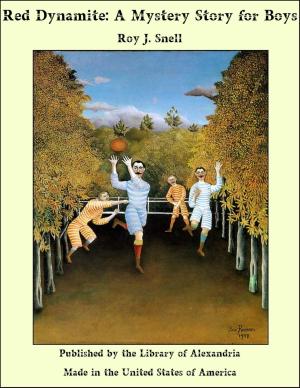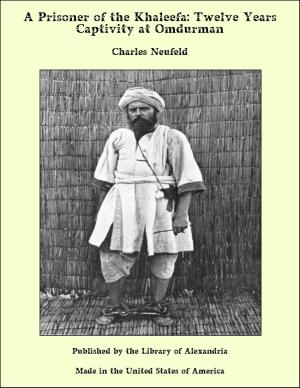Under the Mendips: A Tale
Nonfiction, Religion & Spirituality, New Age, History, Fiction & Literature| Author: | Emma Marshall | ISBN: | 9781465563255 |
| Publisher: | Library of Alexandria | Publication: | March 8, 2015 |
| Imprint: | Language: | English |
| Author: | Emma Marshall |
| ISBN: | 9781465563255 |
| Publisher: | Library of Alexandria |
| Publication: | March 8, 2015 |
| Imprint: | |
| Language: | English |
It was a fair morning of early summer, when the low beams of the eastern sun, threw flickering shadows across the lawn, which lay before Fair Acres Manor, nestling under the shelter of the Mendip Hills, somewhere between Wells and Cheddar. Truth compels me to say, that the lawn was covered with daisies, and that their bright eyes looked fearlessly up into the blue sky; for mowing machines were unknown, and the old gardener, coachman, and universal out-of-door servant sharpened his scythe, only at long intervals, to lay the heads of the flowers low, so that the daisies grew and flourished, and had a good time of it. I know that daisy-speckled turf is considered an offence in the eyes of the modern gardener. I know with what zeal the spud is used; how large bare places are regarded with delight; how seed is scattered over them, which the birds watch with cunning glances from the neighbouring shrubs and trees, and pounce down upon, as soon as the diligent master of the place, has straightened his aching back and turned it upon the scene of his labours. The dewy lawn before Fair Acres, with its beautiful mosaic of white and gold, fringed with circles of deepest crimson here and there, would not suit the taste of the conventional gardener of these days; nor would the low, irregular building which overlooked it, be considered an attractive or fitting residence, for the sons and daughters of the small country squire in the ninth decade of the century. But in the second decade, in which my story opens, things were different. The country squire lived a country life. He farmed his own acres, he walked over his own fields; his 'stock' were individual cows and horses to him; he could pat each one and call it by its name. His house was his home, and the restlessness of travel, and longing for excitement had not as yet, for the most part, disturbed either him or his children. Now the resonant steam eagle, as it flies across the country side, seems to call upon the dwellers in rural districts to follow where it leads, and an isolated manorial farm like Fair Acres, and a family like the Falconers who inhabited it, are all but impossible to find nowadays.
It was a fair morning of early summer, when the low beams of the eastern sun, threw flickering shadows across the lawn, which lay before Fair Acres Manor, nestling under the shelter of the Mendip Hills, somewhere between Wells and Cheddar. Truth compels me to say, that the lawn was covered with daisies, and that their bright eyes looked fearlessly up into the blue sky; for mowing machines were unknown, and the old gardener, coachman, and universal out-of-door servant sharpened his scythe, only at long intervals, to lay the heads of the flowers low, so that the daisies grew and flourished, and had a good time of it. I know that daisy-speckled turf is considered an offence in the eyes of the modern gardener. I know with what zeal the spud is used; how large bare places are regarded with delight; how seed is scattered over them, which the birds watch with cunning glances from the neighbouring shrubs and trees, and pounce down upon, as soon as the diligent master of the place, has straightened his aching back and turned it upon the scene of his labours. The dewy lawn before Fair Acres, with its beautiful mosaic of white and gold, fringed with circles of deepest crimson here and there, would not suit the taste of the conventional gardener of these days; nor would the low, irregular building which overlooked it, be considered an attractive or fitting residence, for the sons and daughters of the small country squire in the ninth decade of the century. But in the second decade, in which my story opens, things were different. The country squire lived a country life. He farmed his own acres, he walked over his own fields; his 'stock' were individual cows and horses to him; he could pat each one and call it by its name. His house was his home, and the restlessness of travel, and longing for excitement had not as yet, for the most part, disturbed either him or his children. Now the resonant steam eagle, as it flies across the country side, seems to call upon the dwellers in rural districts to follow where it leads, and an isolated manorial farm like Fair Acres, and a family like the Falconers who inhabited it, are all but impossible to find nowadays.















